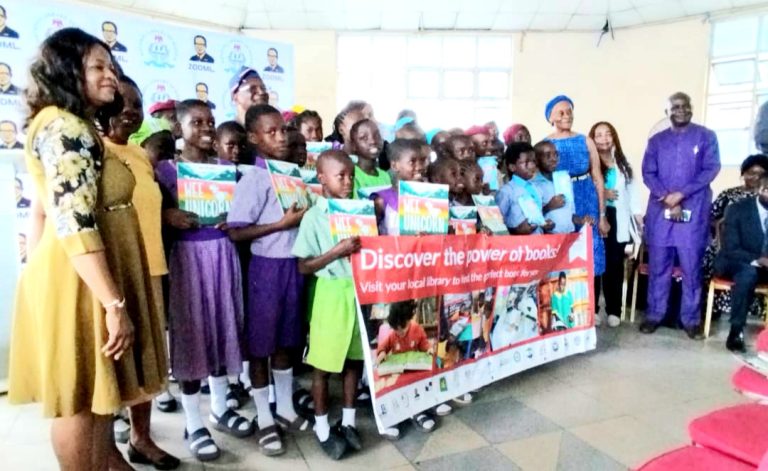Chief Executive Officer of the National Library of Nigeria (NLN), Prof. Veronica Chinwe Anunobi, has emphasized the importance of children effectively communicating in their indigenous languages in schools, at home, and elsewhere.
She stated that the ability of a child to speak, read, and write effectively in their local language would enhance knowledge not only about careers but also about interaction, culture, and identity.
She made this assertion at an event to commemorate this year’s International Literacy Day, held at the National Library Annex in Lagos.
The event, themed “Promoting Multilingual Education,” was organized by the Zaccheus Onumba Dibiaezue Memorial Libraries (ZODML) in conjunction with the National Library of Nigeria.
ALSO READ: UPDATED: Ighodalo speaks on alleged INEC compromise, laments officials’ late arrivals
Some primary and secondary school students from the Yaba area, including Adekunle Anglican Primary School and Wesley Girl’s Junior Secondary School, were in attendance. Interestingly, only seven out of 16 of them could speak their local languages fluently; the others could not.
Speaking further, Prof. Anunobi put Nigeria’s literacy level at 62 percent, noting that literacy is a tool for creating a more just, peaceful, and sustainable society. “It is also a ladder to prosperity and making use of potential,” she added.
Explaining that the UN’s Sustainable Development Goals (SDGs) are tied to literacy, the scholar urged policymakers to take actions that will promote literacy, such as establishing libraries for lifelong learning and development in remote and urban communities.
She also urged children to take their mothers’ tongues very seriously by ensuring they learn, speak, read, and write in them.
“It is only when you are able to identify with your indigenous language that you become curious about other languages,” she stressed.
Earlier, the convener of the program and co-founder of Zaccheus Onumba Dibiaezue Memorial Libraries (ZODML), Mrs. Ifeoma Esiri, also emphasized the importance of children’s ability to speak, read, and write in their indigenous languages effectively.
She noted that this is one way, aside from sharing knowledge, to preserve the culture and identity of society.
She urged governments at all levels to implement policies that encourage this practice, including establishing literacy centers in communities across the country.
According to her, it is a pity that many of our children cannot speak their native language fluently; some can’t even speak it at all, which is not good. “Language is a vital aspect of culture, and when a people lose their language, what is left of their culture?”
“When our children cannot speak our tongues, how would they be able to speak in proverbs? Speaking in proverbs is a clever method that our elders used to communicate and pass on important messages, especially in the past.
So, the government must have a policy in place to change this narrative.
“Besides the government, parents also have a role to play in this regard. They must converse with their children in their language.
That won’t stop the children from being proficient in any other language,” she said.
Addressing the students at the event, Pa Newton Jibunoh, 87, who crossed the Sahara Desert four times, encouraged them to be focused and hardworking, noting that literacy is more than just being educated.
NIGERIAN TRIBUNE
